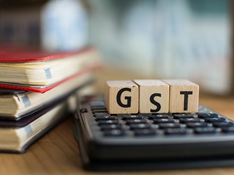Goods and Services Tax Council
Context
The 47th meeting of the Goods and Services Tax Council conducted in Chandigarh.
What is the GST Council?
- Simply put, GST Council is the governing body for the implementation of GST rules in India.
- Creation of the GST Council was facilitated by the Constitution (One Hundred and Twenty Second Amendment) Bill 2016.
- The Goods and Services Tax Council is a constitutional body under Article 279A (1).
- The secretariat office is situated in New Delhi and Union Revenue Secretary acts as the ex-officio Secretary to the GST Council.
- Objectives: The main task of the council is to make recommendations to the Union and the States on important issues related to GST, like:
- The goods and services that may come under the banner of GST
- Model GST Laws
- Principles that govern Place of Supply
- Threshold limits
- GST rates including the floor rates with bands
- Special rates for raising additional resources during natural calamities/disasters
- The appointment of Goods and Services Tax levied on supplies in the course of Inter-State trade or commerce under article 269A
- Making special provisions for the following states: Arunachal Pradesh, Assam, Jammu and Kashmir, Manipur, Meghalaya, Mizoram, Nagaland, Sikkim, Tripura, Himachal Pradesh and Uttarakhand

- The Supreme Court recently made it clear that the Council is only a recommendatory body and its recommendations are not binding on Centre or states.
|
As per the Supreme court, the Council’s recommendations will have a “persuasive value” and that both Parliament and the state legislatures can equally legislate on the matters related to GST. |
Members
The GST Council consists of the following members:
- The Union Finance Minister (as Chairman)
- The Union Minister of State in-charge of Revenue or Finance
- The Minister in charge of Finance or Taxation or any other Minister, nominated by each State Government

